 Senses Activities
Senses Activities
Here you can find activities to educate your child about the five senses.
-

- Activity Title
- ?
Topic or Theme
Identifying letters in a child's name and listen to ABC (The Alphabet Song)

-
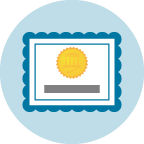
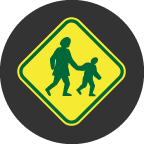
First Name
Brief description of activity or summary of tasks and/or materials used.
-

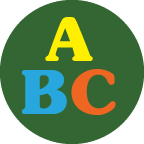
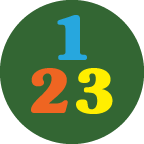
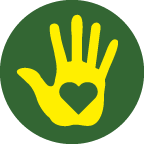

-
- Senses
- 10
Taste
Tasting the difference between sweet and sour
-
Taste
Tasting the difference between sweet and sour
-


-
- Senses
- 11
Sight
Singing and acting out finger play "There Was A Little Turtle"
-
Sight
Singing and acting out finger play "There Was A Little Turtle"
-




-
- Senses
- 10
Hearing
Learning to listen activity using song "Jump Up (It’s A Good Day)" emphasizing joy
-

Hearing
Learning to listen activity using song "Jump Up (It’s A Good Day)" emphasizing joy
-



-
- Senses
- 11
Review
Learning five senses with help from the Gingerbread Man
-
Review
Learning five senses with help from the Gingerbread Man
-



-
- Senses
- 11
Taste
Sugar vs. Salt
-
Taste
Sugar vs. Salt
-


-
- Senses
- 10
Sight
Child describes what they see when they look in the mirror
-
Sight
Child describes what they see when they look in the mirror
-


-
- Senses
- 11
Hearing
Read "Museum ABC" and play hide and seek with a whistle
-
Hearing
Read "Museum ABC" and play hide and seek with a whistle
-



-
- Senses
- 11
Sight
Using toys for a memory game
-
Sight
Using toys for a memory game
-


-
- Senses
- 10
Touch
Touching and describing a variety of objects
-
Touch
Touching and describing a variety of objects
-


-
- Senses
- 10
Sight
Read "Head to Toe" and practice recognizing pictures, words and numerals
-
Sight
Read "Head to Toe" and practice recognizing pictures, words and numerals
-


-
- Senses
- 11
SMELL
Mix a child-friendly perfume
-
SMELL
Mix a child-friendly perfume
-




-
- Senses
- 11
Touch
Learning important phone numbers with shaving cream
-
Touch
Learning important phone numbers with shaving cream
-




-
- Senses
- 11
Hearing
Using a paper towel megaphone to teach vocabulary words
-
Hearing
Using a paper towel megaphone to teach vocabulary words
-

-
- Senses
- 10
Review
Cooking and learning about our five senses
-
Review
Cooking and learning about our five senses
-



-
- Senses
- 10
Touch Exploring sense of touch
-
Touch Exploring sense of touch
-



Activity Skills Focus
1 Social / Emotional Skills
Skills that develop children’s ability to understand the emotions of others and help children recognize and use appropriate social behaviors (for example, making friends). In the Department of Education report “Guiding Principles A Resource Guide for Improving School Climate of January 2014 it states “strategies such as social-emotional learning programs that address non-cognitive skills, including problem-solving, responsibility and resiliency, can also help students develop the skills needed to fully engage and thrive in the learning environment.”
2 Language Skills
Skills that help children understand and communicate during early childhood. The alphabetic principle (knowing letter names and sound-letter matches) aids in language development and is enriched by verbal interactions with other children and adults (reading aloud and engaging in conversation).
View all Language Skills Activities
3 Math / Science Skills
Math and Science skills help children with problem-solving and reasoning. Exploring numbers, patterns, and measurements by using math manipulatives (beads, counters, pennies) are all ways children develop their math skills. Asking questions about their surroundings, learning a science vocabulary (predict, observe), and having hands-on experiences with their environment can help develop their science skills.
4 Motor Skills
Motor skills are actions that involve the movement of muscles in the body. They are divided into three groups:
1. gross motor skills, which are the larger movements of arms, legs, feet, or the entire body (crawling, running, and jumping)
2. fine motor skills, which are smaller actions, such as grasping an object between the thumb and a finger (pencils or scissors)
3. sensorimotor skills which use the five senses to guide physical motions as in eye-hand coordination.
View all Motor Skills Activities
5 Problem Solving Skills
Skills that help with the construction of thought processes, including memory, problem-solving, and decision-making.
